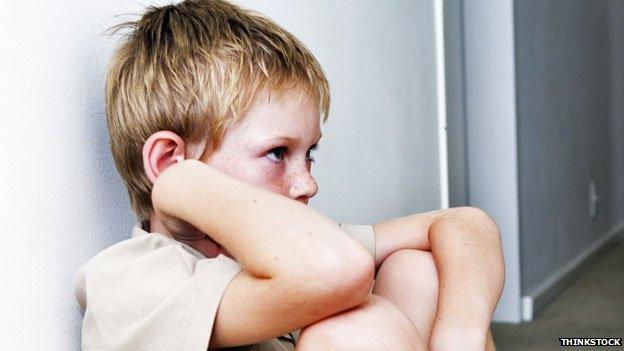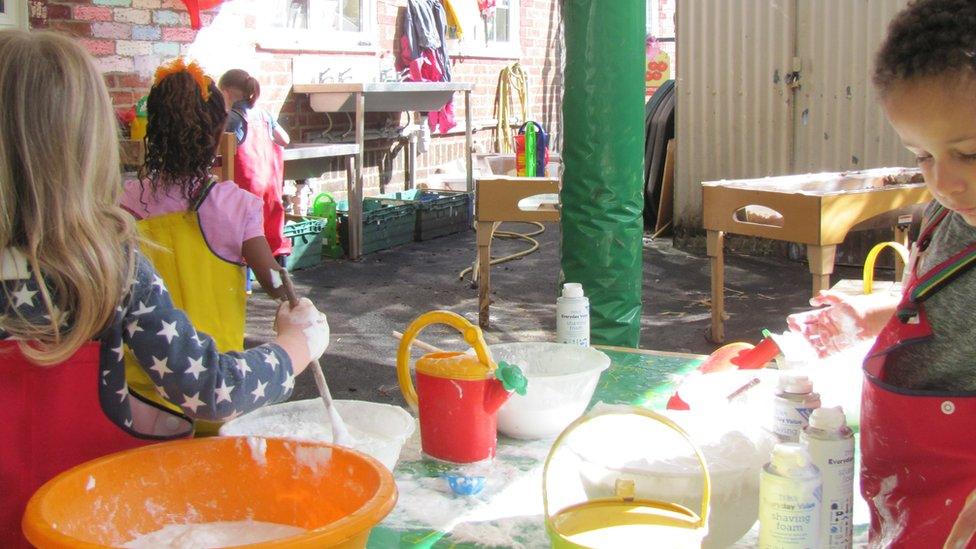Families 'pushed into child protection system by cuts'
- Published

Early intervention services can prevent problems from becoming crises
Struggling families are being pushed into the child protection system because early intervention services are not available, MPs have heard.
Professor of social work Ray Jones told the Education Committee family support services were being "decimated" because of council cuts.
He cited predictions of a 71% cut in funding to family support and early intervention services in England.
The government said it was up to councils to set local services.
"Councils are ultimately responsible for deciding what services are needed in their area, and we are giving them almost £200bn to spend on local services by 2020 to support this," said a spokeswoman.
But Prof Jones said ongoing cuts were putting pressure on the child protection system.
He said early intervention and family support services should be retained rather than cut.
"Children's centres are closing, funding for voluntary organisations like Home Start is being turned off," he said.
"The consequence is that we are escalating children and families into the child protection proceduralisation and bureaucracy, because this is the only resource we have for those children.
"It's threatening for families and children, it's demoralising for social workers, and we are overheating the child protection system."
'Prevention better'
His comments were backed up by councillor Roy Perry, chairman of the children and young people board of the Local Government Association.
He said: "Prevention is clearly better than cure, so putting money into early services is important.
"In my council, and in councils across England, there's a lot of worry that there's less resources available for youth work, youth clubs, family support work and children's centres, and that is an issue.
"The resources need to be targeted and focused more closely."
He said: "The issue now is that councils are having to protect their investment in child social workers and social work teams, but that does mean that there are frankly less resources available for those other activities."
Prof Jones was citing figures from the Losing in the Long Run report, jointly published by Action for Children, Children's Society and National Children's Bureau earlier this month.
It suggests funding from central government for early intervention projects, such as teenage pregnancy support, respite care for disabled children and family and support services, would see cuts from £1bn to £3.2bn over the next four years.
Although local authorities will gain powers to pay for services through local business taxes, most councillors surveyed for the report feared there would be cuts to these services.
The government spokeswoman said statutory guidance made it clear councils should work closely with other services to identify, as early as possible, children who may be at risk.
"Funding for children's services, including the early intervention grant, is non-ring-fenced to give local authorities the flexibility to focus on locally determined priorities," she added.
- Published7 July 2015

- Published19 October 2015
